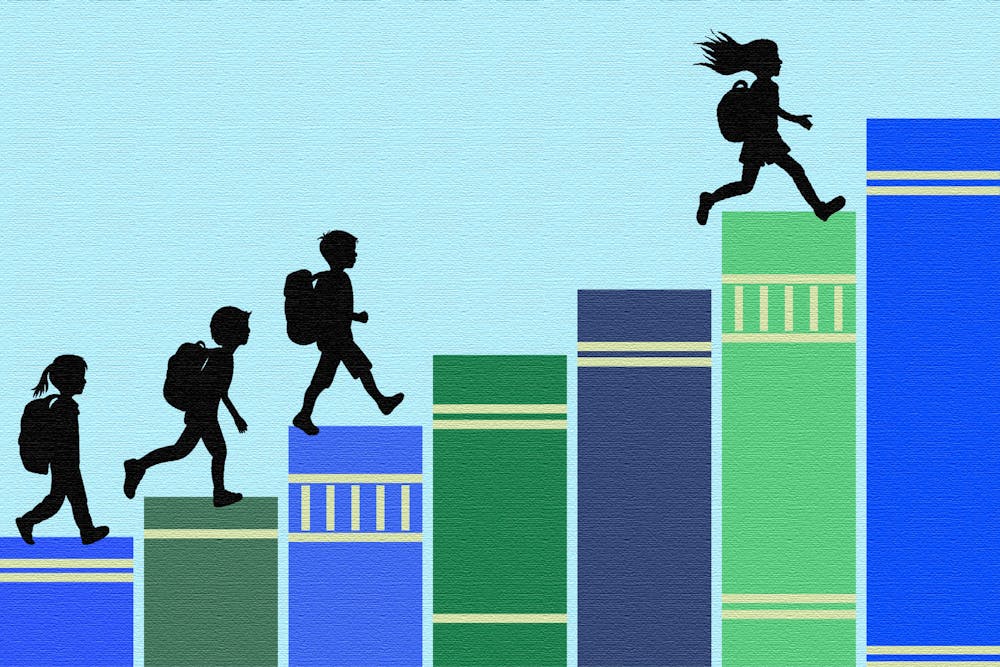Chapel Hill-Carrboro City Schools’ Learning Environment for Advanced Programming — known as LEAP — intends to serve "profoundly gifted" students who "require specialized programming beyond what is provided by the regular educational setting" and is the highest level of gifted education in the school district.
Third grade students are placed in LEAP self-contained classrooms through eighth grade to supplement what the district calls an "extreme need" for advanced education.
Selection process
CHCCS begins identifying students for gifted services in third grade with a universal screening process, according to Kate Kennedy, the director of advanced learning and student leadership for the district.
Kennedy said each student is placed into a group based on race, ethnicity, socio-economic status and more by the state and then tested. She said the test is designed to measure aptitude and achievement. Every student who scores in the 90th percentile of their group is considered for the LEAP program, she said.
Students within the 90th percentile are evaluated by a panel that looks at both "teacher-pleasing and non-teacher-pleasing aspects of giftedness." According to Kennedy, intensity, disruption and difficulty with authority are all "non-teacher-pleasing" characteristics that are also aspects of giftedness.
Once the students have been evaluated and the district uses a racial equity impact assessment, Kennedy said students are then selected to be in LEAP. A racial equity impact assessment is a systematic examination of how different racial and ethnic groups will likely be affected by a proposed action or decision, according to CHCCS' website.
“When you put all those pieces together, what happens is, you start to see a strength profile emerge,” she said. “And then students are identified based on the level of service need, with LEAP being the most extreme need.”
After selection by the panel, LEAP students attend Seawell Elementary School and Smith Middle School to learn in self-contained classrooms with other students in the program for their core classes.




